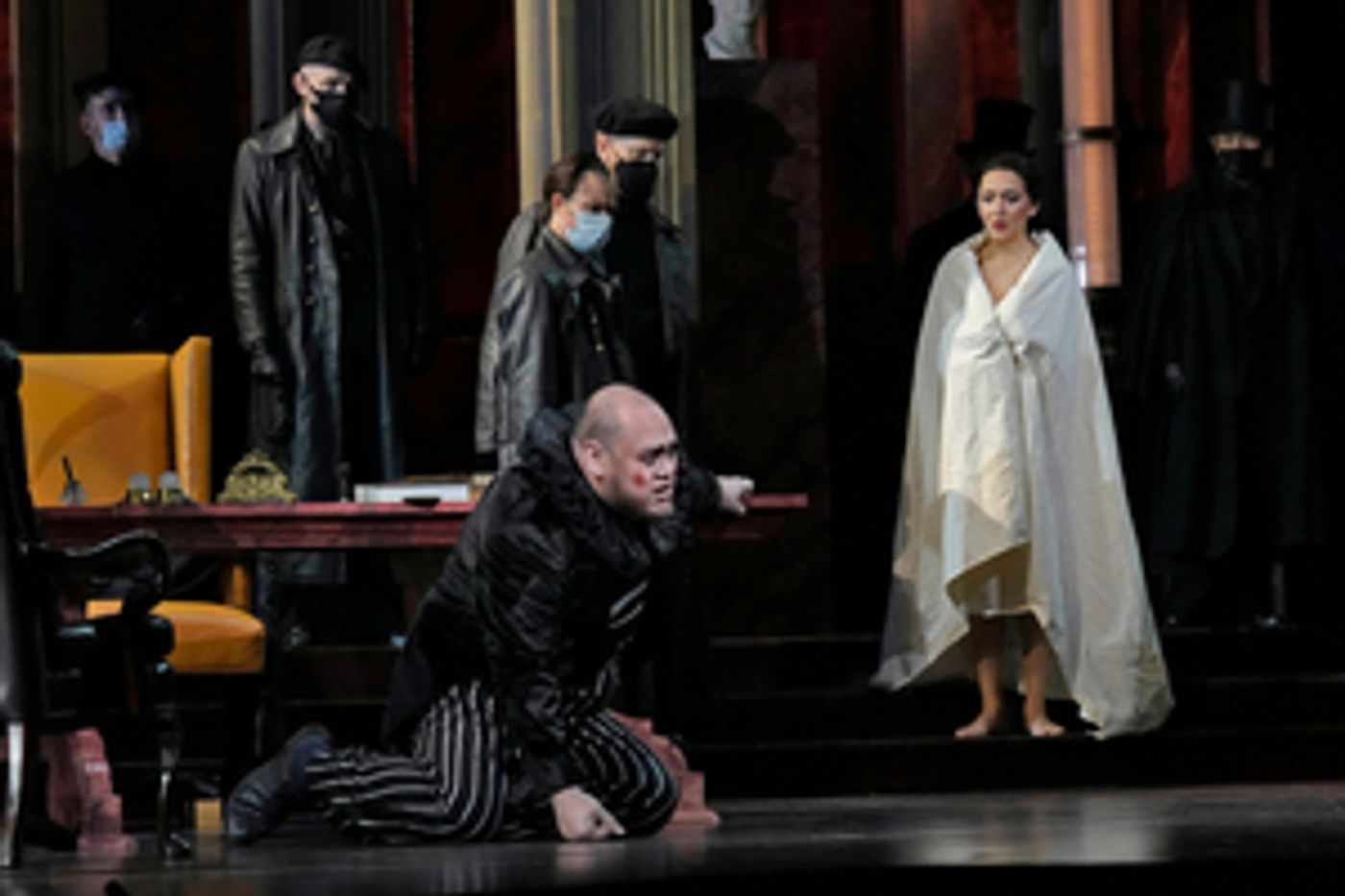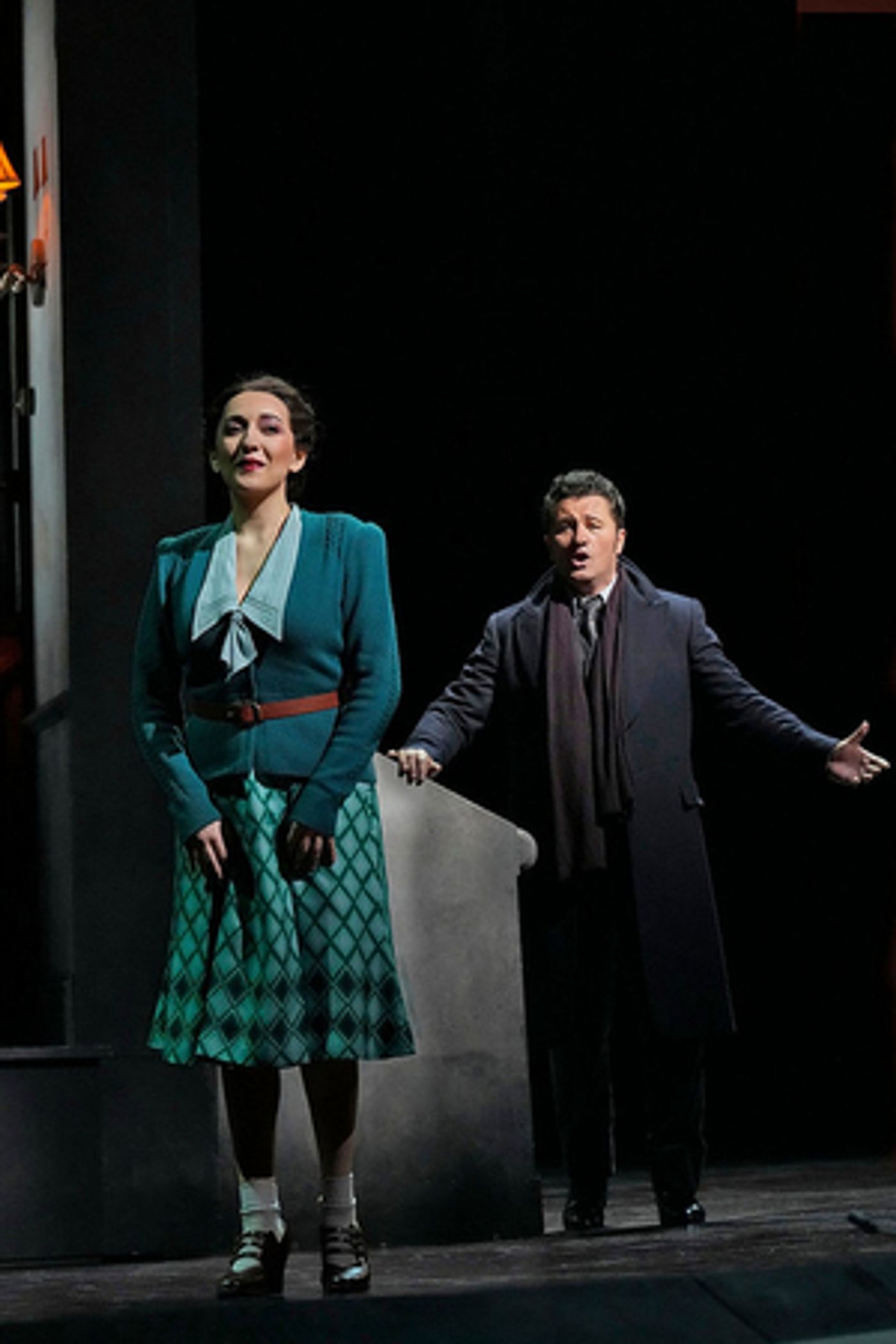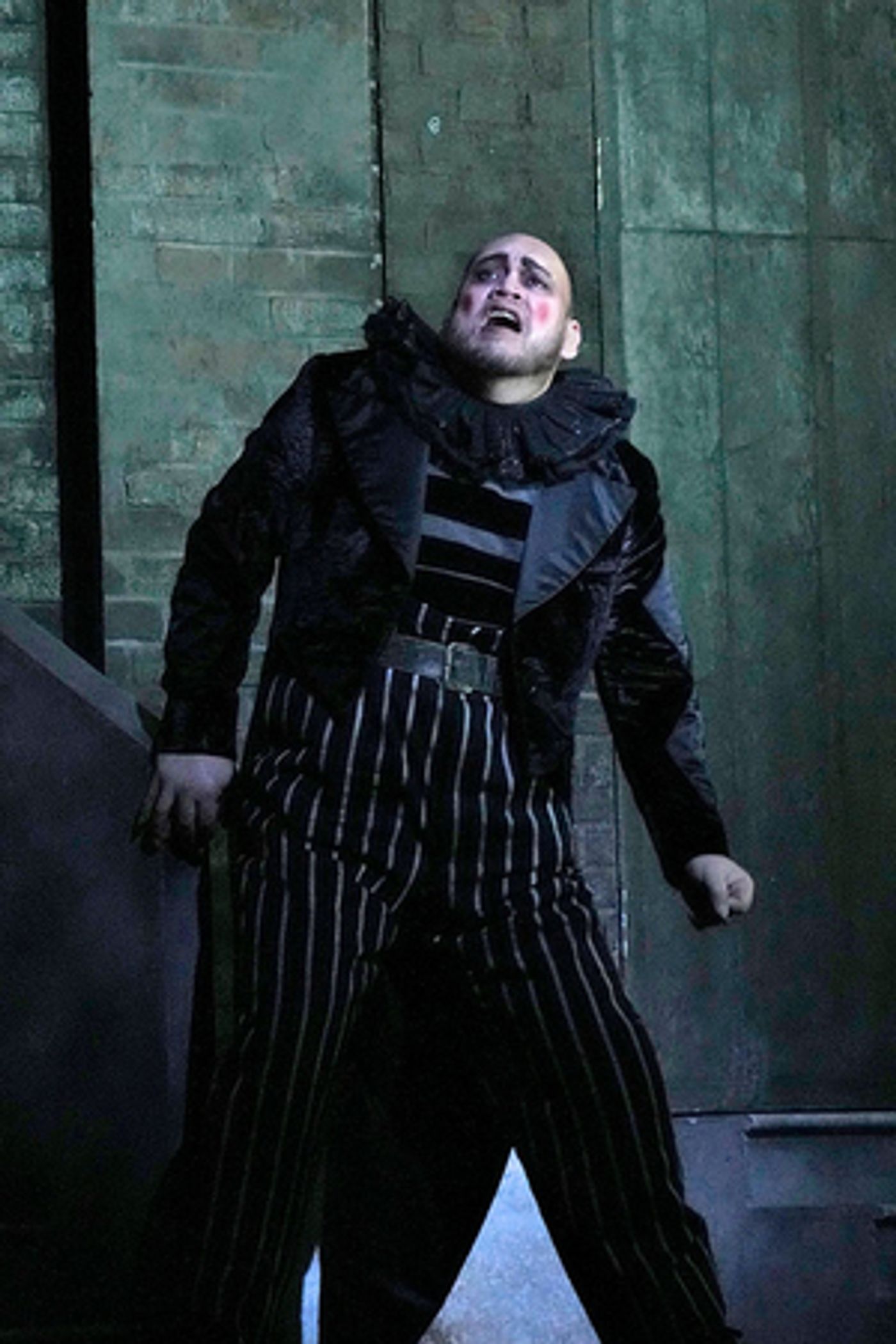Review: New Year, New RIGOLETTO at Met Highlights Good Singing
Kelsey, Feola and Beczala Head Cast But Sher Production Disappoints

Photo: Ken Howard/Met Opera
When I saw the George Grosz-ish curtain that introduced us to the new Barlett Sher "Weimar-inspired" production of Verdi's RIGOLETTO at the Met on New Year's Eve, I was excited about what lay ahead. Combined with Verdi's great score, it seemed bound for success.
While I was a fan of the "Rat Pack" production that preceded it--I know many weren't--I was ready to see what the Tony-Award winning director had up his sleeve. What followed was disappointing, despite some creditable singing and smooth, involved orchestral playing under Daniele Rustioni, with much blame I thought, going to Sher.
Let's start with the singing. Baritone Quinn Kelsey, the production's Rigoletto, is the real thing, vocally. He sounded well, indeed. In his scenes with his daughter, Gilda (soprano Rose Feola), both in Act I and III, he was unbelievably touching.

Ken Howard/Met Opera
When he rips through the courtiers in Act II for their abduction of Gilda, in "Cortigiani, vil razza dannata," he is frightening in his outrage. In fact, the ability to strike fear is what I find so present in much of Kelsey's work: I found him the most scary of any Germont (TRAVIATA) I have ever heard. But as the jester, I found something lacking--even when the courtiers reacted to him I couldn't quite find anything funny or sarcastic in his portrayal to merit their reception. But I had no complaints about his voice!
Soprano Feola was charged with filling in more to the character of Gilda than usual. She's not the naïve girl from beginning to end, but takes time for her to realize what a cad the Duke is--or as she knows him in his student guise, Gualtier Maldè--and showing a little vengeance in her blood, before eventually giving up her life to save him. She has a lovely, pure voice, and her scenes with Kelsey were truly poignant.

Photo: Ken Howard/Met Opera
Tenor Beczala's Duke is familiar: He was in the opening of the Vegas production as well, with a voice generally well-suited to the role, though it has gotten much larger since his "Rat Pack" days. (He may not acknowledge this change, as I thought he sounded much too loud and raw in Act II's "Ella mi fu rapita!" though it served him well in singing the encore "La donna e mobile" snippet just before the end of Act II.) I found his role also had some changes in the staging, less entitled and more good-natured--less of a louse--until his scene in Sparafucile's lair at the very end.
Bass Andrea Mastroni did well, as the hired-gun Sparafucile, while mezzo Varduhi Abrahamyan was a fine Maddalena, in her house debut. They filled out the quartet in Act III's "Bella figlia dell'amore" quite nicely. Bass-baritone Craig Colclough did well as Monterrone, more of a mad figure than usual, denouncing the Duke for seducing his daughter and ridiculed by Rigoletto whom he then curses, setting the opera's action in motion.

Ken Howard/Met Opera
Sher's concept for the production was more of an idea than a worked out solution and that trickled down to the look of the production. I didn't think that Michael Yeargan's scenic design--basically a revolving unit set that helped the action move along fluidly--was one of his better efforts, sometimes blocking the action, sometimes revolving unnecessarily. I found the scenes in Rigoletto's home and Sparafucile's (very cramped) lair rather underdesigned and dull. Donald Holder's lighting was a useful addition, however, to enlightening Yeargan's work. Catherine Zuber's rich costumes served the production's concept well.
RIGOLETTO, with its marvelous, varied score, will be performed by the company many times between this week and the late part of the season, with different casts: January 4 at 8pm, 7 at 7:30pm, 11 at 7pm, 15 at 8pm, 19 at 7pm, 22 at 8pm, 25 at 7pm, 29 at 1pm. May 28 at 8pm, June 1 at 7:30pm, 4 at 8pm, 8 at 7:30pm, 11 at 8pm. The January 29 matinee will be broadcast live at 12:55 EDT to theatres globally as part of the Met's Live in HD series.
For more information, see the Met's website.
Reader Reviews
Videos

